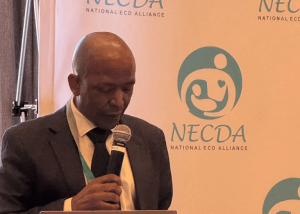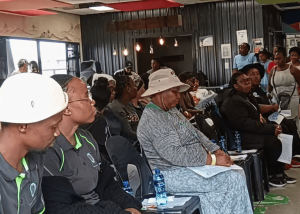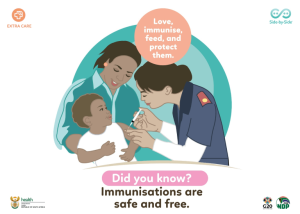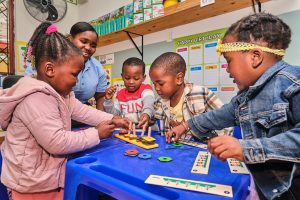By Theresa Michael
Afrika Tikkun
The State of Inclusion in ECD Centres
Inclusion has become a growing priority in the early childhood development (ECD) sector across South Africa. The vision is clear: every child, regardless of ability or disability, deserves access to high-quality early education. However, the question remains—are South African ECD centres truly ready to support children with severe disabilities?
ECD centres are critical in shaping a child’s early learning experiences, providing the foundation for lifelong development. While many centres are increasingly aware of the need for inclusive practices, the reality is that most are not yet fully prepared to accommodate children with severe disabilities. This lack of readiness is influenced by various factors, including inadequate infrastructure, insufficient training for teachers, and a lack of necessary resources.
Are Teachers Equipped?
Teachers play a pivotal role in creating an inclusive environment, but many South African ECD practitioners are not adequately trained to work with children with severe disabilities. According to a recent study by the Department of Basic Education (DBE), only a small percentage of ECD teachers have received specialised training in inclusive education. This gap means that teachers often feel ill-prepared to support children with diverse needs, which can result in children with disabilities being left out or not receiving the level of attention they need to thrive.
Teacher training programmes that focus on inclusion are crucial. These programmes should address strategies for managing diverse classrooms, understanding different disabilities, and creating adaptive learning materials. Additionally, ongoing mentorship and support can help teachers feel more confident and competent in fostering an inclusive environment.
Is the Infrastructure Equipped?
A significant barrier to inclusion in ECD centres is the lack of infrastructure designed to support children with severe disabilities. Many centres are located in buildings that lack ramps, accessible toilets, wide doorways, and safe outdoor play areas for children with mobility challenges. The absence of such basic infrastructure not only limits access but can also be a source of frustration and exclusion for children with disabilities.
To ensure that all children feel welcome and included, ECD centres need to invest in creating spaces that are physically accessible. This includes adapting furniture, providing sensory play areas, and ensuring that children with hearing or visual impairments have access to appropriate learning tools.
Government and Community Involvement
The South African government has made some strides in promoting inclusive education, but more action is needed. Funding remains a significant obstacle, and many ECD centres, particularly in rural areas, lack the financial resources to make the necessary adjustments. Partnerships between the government, private sector, and non-profit organisations can help bridge this gap. By working together, stakeholders can ensure that ECD centres receive the funding and support needed to upgrade their infrastructure and train their teachers.
Furthermore, inclusion is not solely the responsibility of ECD centres. Parents, caregivers, and communities must also be involved in advocating for inclusive practices and supporting children with disabilities in their development.
Afrika Tikkun Bambanani Leading the Way
Afrika Tikkun Bambanani is actively working towards making inclusive ECD centres a reality. In partnership with the Department of Basic Education, they are collaborating with other NGOs and corporate partners to drive the necessary changes. Their commitment involves training teachers, upgrading infrastructure, and ensuring that children with disabilities have the same opportunities as their peers to learn and grow in a supportive environment.
The Way Forward
The journey towards inclusion in South Africa’s ECD sector is complex and requires a multi-faceted approach. It involves rethinking how we train teachers, how we design learning environments, and how we approach education as a whole. To create truly inclusive ECD centres, we must move beyond seeing inclusion as a “nice-to-have” and recognise it as a fundamental right for every child.
By equipping teachers with the skills and knowledge to support all learners and adapting infrastructure to accommodate every child’s needs, South Africa can take a significant step towards building an inclusive education system. It will require commitment, collaboration, and investment—but the benefits for our children and society as a whole are immeasurable.
Are we ready for inclusion?
With the efforts of organisations like Afrika Tikkun Bambanani and their partners, we are one step closer to embracing an environment where every child, regardless of ability, feels seen, supported, and valued.
*The comments in this article are those of the author and do not necessarily reflect the views and opinions of the DBE and UNICEF.*





